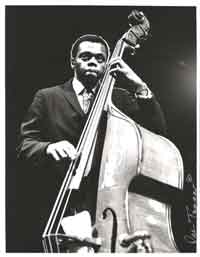Prior to tomorrow’s inauguration, the New York Times (and I suspect many other publications) has focused in many columns, book reviews and reports on Barack Obama’s election as a turning point in the U.S.’s movement towards full civil rights for all people. The entertainment section makes the case for movies having led the way to our first not-completely- “white”-identified President.
-  Don Heckman, then writing about music for the Village Voice, soon to go to the New York Times, and today, after a lengthy tenure with the now beleaguered Los Angeles Times, is a key blogger at Notes from the Left Coast and The International Review of Music;
-  Alan Grant, then WABC disc jockey behind the radio show “Portraits In Jazz” eventually retired with his wife to New Zealand but with his own Last.fm channel;
- Â Ira Gitler, a ’50s record producer and in ’63 the New York editor for Down Beat, a jazz historian, author (with Leonard Feather of The Biographical Encyclopedia of Jazz) and journalist these days teaching at Manhattan School of Music and often read in New York’s Jazz Improv magazine.
“Dear Mr. Grimes, All of us at CORE are deeply grateful for your help in making the benefit performances at the Five Spot a resounding success.
In the extremity of the Civil Rights battle that now confronts us, this kind of tangible and practical support is essential.
Thanking you again, I remain yours in freedom, James Farmer.

